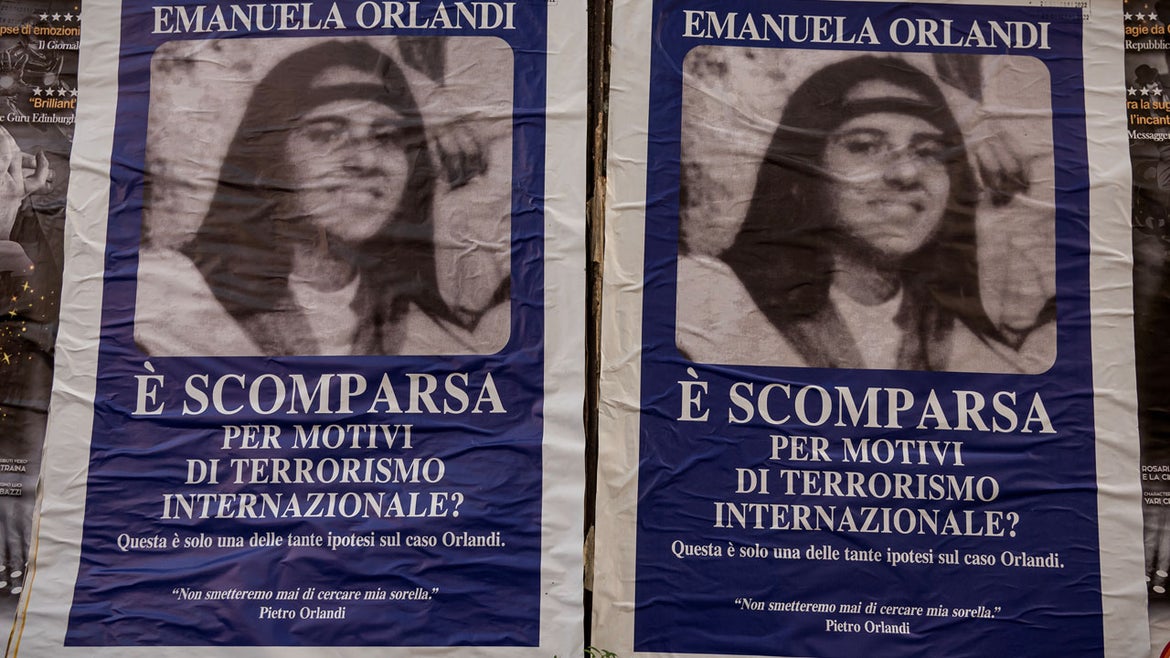The teenager vanished on June 22, 1983 after leaving her family's Vatican City apartment to go to a music lesson in Rome. Her father was a lay employee of the Holy See.
The Vatican has announced that the case of Emanuela Orlandi, the daughter of an employee of the Holy City who went missing in 1983, has been reopened, according to reports.
The case, known as “Vatican Girl,” regained interest last year after a Netflix docuseries of the same name was released.
The Holy See press office director, Matteo Bruni, confirmed Vatican prosecutor, Alessandro Diddi, opened a file Monday partly in response to several requests made by Ms. Orlandi's family, Vatican News reported.
Orlandi, who was 15 at the time of her disappearance, had her case reopened based in part "on the requests made by the family in various places," said Vatican spokesman Matteo Bruni.
A lawyer for the Orlandi family, Laura Sgrò, told NPR she had no independent confirmation of the development, which was first reported by Italian agencies Adnkronos, LaPresse and ANSA.
Sgrò added that her last Vatican filing on the case came in 2019, NPR reported.
“We only found out about the investigation through the media,” Sgrò wrote in a statement obtained by The Guardian. “We wrote to the pope a year ago with the intention of speaking to the promoter of justice. We are of course happy that they are doing an investigation but we really hope this will truly provide concrete answers.”
The teenager vanished on June 22, 1983 after leaving her family's Vatican City apartment to go to a music lesson in Rome. Her father was a lay employee of the Holy See.
Her case has been tied to numerous conspiracies including the plot to kill St. John Paul II, a financial scandal involving the Vatican bank, and Rome’s criminal underworld, the Associated Press reported.
Emanuela’s brother, Pietro, has worked tirelessly to find the truth and justice for his sister. He believes that the Vatican is withholding information and in 2019 was granted access to a tomb in Vatican City where her remains may have been, but nothing turned up.
Last month, an inquest launched by Senator Calenda pushed the Italian legal system as it now is looking to deal with another sovereign nation in Vatican City.
Parliamentary inquests such as this have to be voted on in Italy and in the past have been used in dig into unresolved Mafia crimes and terrorist attacks, and can be activated to conduct investigations “on matters of public interest,” according to the Italian Constitution.
These types of inquiries are not meant to replace police investigations, but participating members of the Italian Parliament have the same powers and limitations as law enforcement. Their final reports can provide sufficient new evidence, as well as political and institutional backing, to justify reopening archived cases, the Associated Press reported.
Related Stories






